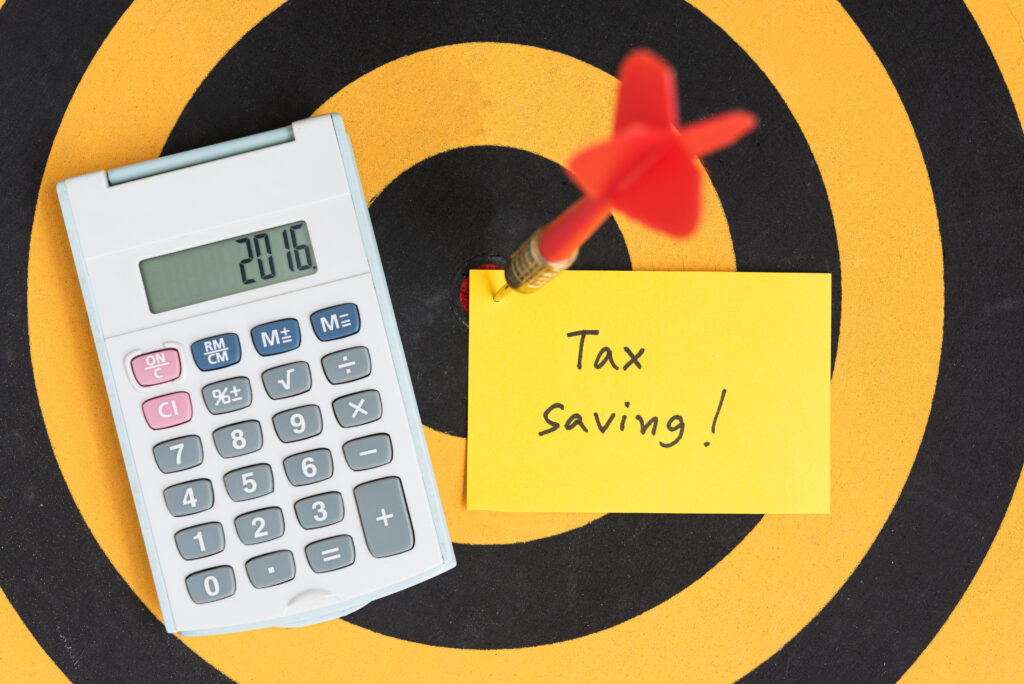Struggling with overwhelming federal tax debt? You may have viable solutions to ease the burden. The Fresh Start Initiative offers a pathway for both individual taxpayers and small business owners to address their outstanding tax liabilities and regain financial stability. This program provides several tools and options aimed at resolving unpaid taxes while helping you move forward. Below is what you need to know about the Fresh Start Initiative and how you can assess your eligibility for the program. Consulting tax experts can provide valuable guidance, ensuring you take full advantage of available relief options and make informed decisions. Understanding these details can be the first step toward resolving your tax issues effectively.

IRS Fresh Start Initiative: A Comprehensive Overview
The IRS Fresh Start Initiative isn’t just one solution, but a suite of options aimed at providing relief for taxpayers struggling with back taxes. Instead of facing the daunting prospect of paying a lump sum, this program allows you to break your debt into manageable payments over time, easing financial pressure. More importantly, it offers protections to help you avoid harsh consequences like wage garnishments and bank levies, which can significantly impact your livelihood. With the Fresh Start Initiative, taxpayers can take back control of their finances while working towards resolving their tax obligations.

Understanding the IRS Fresh Start Initiative
The IRS Fresh Start Initiative offers taxpayers relief by providing multiple options to manage and reduce their tax burden. Depending on your financial situation, the total amount owed, and your ability to pay, you can either set up a payment plan or explore other relief options that may be more suitable for your needs.
Payment Plan Choices under the IRS Fresh Start Initiative
The IRS provides several streamlined installment plans designed to help taxpayers repay their debts more easily.
Simplified Installment Plans
- Short-term payment plan: This option is available to taxpayers who owe less than $100,000 and can make full payment within 120 days. It’s a convenient solution for individuals who have the financial ability to resolve their debt quickly.
- Long-term payment plan (installment agreement): Taxpayers who owe $50,000 or less can opt for a long-term repayment plan with terms extending up to 72 months. For those who owe $25,000 or less, the repayment period is shortened to 60 months. Businesses with tax liabilities under $25,000 are given a maximum of 24 months to settle their debt. This plan provides flexibility for taxpayers who need more time to pay.
- Extended-term repayment plan: A tax relief firm can negotiate an extended repayment plan on your behalf if you qualify. The terms of this plan are tailored to your financial situation, including your income, expenses, and overall tax liability, allowing for more manageable payments over time.
Partial Pay Installment Plans
This payment plan allows taxpayers to make monthly payments toward their back taxes, but the total amount paid is less than what’s owed. This is because the taxpayer’s financial situation makes it impossible to pay off the full balance before the Collection Statute Expiration Date. It’s a viable option for those who are unable to afford the full repayment amount.
Additional Relief Alternatives within the IRS Fresh Start Initiative
If the installment plans don’t align with your financial situation, there are alternative relief options worth considering:
- Offer in Compromise (OIC): This option is a valuable option for individuals who cannot repay their full tax liability due to limited income or assets. If approved, the IRS permits you to settle your debt for a reduced amount. This reduced amount can be paid either in a lump sum within five months or through monthly payments spread over up to 24 months.
- Currently Not Collectible Status: If you are granted this status, the IRS will temporarily halt its collection efforts. However, it’s important to note that your tax debt remains, and collection activities will resume once your financial situation improves.
- Penalty Abatement: Penalty Abatement reduces penalties imposed by the IRS, provided you meet certain criteria. It can be a useful tool for taxpayers who have been hit with steep fines and are seeking a way to reduce their overall tax burden.
For many of these alternatives, you may need the assistance of a tax professional to navigate the process and improve your chances of success. However, it’s always a good idea to do your own research and become familiar with the options that best suit your circumstances.

Who is Eligible for the IRS Fresh Start Initiative?
Understanding who qualifies for the IRS Fresh Start Initiative is essential if you’re looking to reduce your tax burden. Here’s a closer examination of the qualifications for this tax relief program and which debts may be included under its provisions. If you meet the necessary criteria, you could be on the path to managing your tax debt more effectively.
Is the IRS Fresh Start Initiative Open to All Taxpayers?
Not all taxpayers are eligible to apply for the IRS Fresh Start Initiative. To qualify, you must owe back taxes, but that’s not all—there are specific eligibility requirements depending on the program you choose to pursue. Whether it’s the Offer in Compromise or an Installment Agreement, each option has distinct criteria that taxpayers must meet.
Overview of Eligibility Requirements for the Initiative
To qualify for the Fresh Start Initiative, you must be up-to-date on all your federal tax filings and owe no more than $50,000 in combined back taxes, interest, and penalties. Meeting these conditions is crucial if you want to be considered for the program.
If you’re a small business owner, the requirements differ slightly. You may qualify for relief under the Fresh Start Initiative if your business owes no more than $25,000 in payroll taxes. In addition, you must ensure that all your federal tax returns and quarterly payments are filed and current to be eligible.
Which Types of Debts Can Be Addressed by the IRS Fresh Start Initiative?
The IRS Fresh Start Initiative primarily covers federal back taxes, interest, and penalties. However, it’s important to note that state taxes aren’t included in this program. If you owe back taxes to your state, you’ll need to contact your state tax authority to explore other options for resolving your outstanding tax debt. Handling both federal and state taxes can help you move closer to financial freedom.

What Advantages Does the IRS Fresh Start Initiative Offer?
The IRS Fresh Start Initiative offers several valuable benefits that can ease your tax burden and help you regain financial control. This program is designed to make repaying your tax debt more manageable, providing both flexibility and relief to taxpayers. Whether you’re dealing with penalties, liens, or unaffordable payment plans, the Fresh Start Initiative can offer solutions that fit your specific needs.
How the Fresh Start Initiative Provides Payment Flexibility
The Fresh Start Initiative provides you with multiple options to customize your tax debt repayment plan according to your financial situation. You can enter into an installment agreement that allows you to extend your payment timeline without facing harsh penalties. This flexibility is especially advantageous if you’re experiencing a temporary financial setback or unexpected expenses. Additionally, the program ensures that your payment plan is realistic, helping you stay on top of your tax obligations while managing your other financial responsibilities.
How to Reduce IRS Liens and Levies with the Fresh Start Initiative
One of the most significant advantages of the IRS Fresh Start Initiative is its ability to reduce the stress associated with tax liens. This program can help prevent the IRS from filing a lien against your assets in the first place. If you already have a lien, the Fresh Start Initiative may assist you in getting it lifted, giving you peace of mind and protecting your property. It’s a critical step in restoring your financial standing and avoiding long-term complications.
Making Tax Payments More Manageable with the Fresh Start Initiative
The installment agreement offered through the Fresh Start Initiative makes monthly payments more affordable and less overwhelming. This option allows you to spread out your tax payments into smaller, manageable amounts rather than facing an unpayable lump sum. In addition, other relief programs under the initiative can help minimize penalties and reduce interest rates, lowering your overall balance. These provisions make it easier to meet your tax obligations without the constant fear of mounting debt or penalties.

How to Enroll in the IRS Fresh Start Initiative?
The application process depends on the specific program you choose under the IRS Fresh Start Initiative. Generally, most programs require you to complete designated forms and submit them along with supporting documentation. To streamline your application, it’s crucial to verify your eligibility first. This step ensures that you avoid unnecessary confusion or disappointment later in the process. Taking the time to double-check your qualifications can make a significant difference in your experience.

Key Considerations for the IRS Fresh Start Initiative
Debunking Common Myths and Providing Clarifications
There are a few common misconceptions when it comes to the IRS Fresh Start Initiative. Understanding these will help set realistic expectations:
Misconception: You can wipe out all tax debt through the Fresh Start Program.
Clarification: The program is designed to reduce the total amount of tax debt you owe, but it does not eliminate all tax liabilities. Not every type of tax debt qualifies for removal, so it’s vital to understand that the program’s primary aim is to make your debt more manageable, not to erase it entirely.
Misconception: Once you join a Fresh Start program, you’re no longer obligated to pay taxes.
Clarification: While the program helps with past tax debts, you are still responsible for filing and paying your current taxes. The Fresh Start Initiative is meant to assist with overwhelming previous tax liabilities, but it doesn’t relieve you from your ongoing tax obligations. Keeping up with current tax filings and payments is essential to stay compliant.
What to Expect After Utilizing the Fresh Start Initiative
Once you successfully enroll in the Fresh Start Initiative, you must adhere strictly to the program’s terms to maintain your eligibility. Compliance with these terms is essential for receiving relief from your burdensome federal income tax debt. If you fail to follow the guidelines, the IRS can revoke your participation in the program. This would allow them to resume collection activities, including wage garnishments or property liens. Therefore, staying on track with the program’s requirements is crucial to ensuring long-term financial relief.

Tax Relief Through Professional Assistance
Navigating the IRS Fresh Start Initiative can be complex, and professional assistance can play a pivotal role in achieving the best outcomes. Engaging a tax professional, such as a certified public accountant (CPA) or a tax resolution specialist, can help you understand your options more clearly and ensure that you’re leveraging the program effectively.
Why Consider Professional Assistance?
Tax professionals offer expertise that can simplify the application process for the Fresh Start Initiative. They can provide a thorough evaluation of your financial situation, help you determine the most suitable relief options, and assist with the necessary paperwork. Their experience can also be valuable in negotiating with the IRS, ensuring that your agreements are favorable and sustainable.
Choosing the Right Tax Professional
When selecting a tax professional, look for credentials and experience in tax resolution. A reputable professional should have a proven track record with the IRS Fresh Start Initiative and be able to provide references or case studies of past successes. It’s important to work with someone who communicates clearly and is transparent about fees and services offered.
Benefits of Professional Guidance
- Expertise and Knowledge: Tax professionals are well-versed in the nuances of tax relief programs and can provide insights that you may not be aware of.
- Time Savings: Handling tax issues can be time-consuming. Professionals can manage the process efficiently, allowing you to focus on other important aspects of your life or business.
- Stress Reduction: The complexity of tax issues can be overwhelming. Having an expert by your side can reduce stress and give you confidence in managing your tax liabilities.
For many taxpayers, the investment in professional assistance can be worthwhile, as it often leads to better outcomes and a smoother resolution of tax issues. If you’re considering applying for the IRS Fresh Start Initiative, consult with a tax professional, such as Tax Resolution Services of Hawaii, to guide you through the process and maximize the benefits of the program.
Conclusion
Navigating tax debt can be daunting, but the IRS Fresh Start Initiative offers a lifeline for those struggling with overwhelming liabilities. By providing various options like manageable payment plans and relief programs, this initiative helps taxpayers regain control of their financial future. Whether you need to reduce penalties, set up an affordable repayment plan, or explore other relief options, understanding the Fresh Start Initiative is a crucial step toward resolving your tax issues. To fully benefit from this program, consulting with a tax professional, such as Tax Resolution Services of Hawaii, can offer tailored guidance and support, ensuring you make informed decisions and take full advantage of the relief available. Embrace this opportunity to alleviate your tax burden and set a course for a more stable financial future.
Frequently Asked Questions
1. What is the IRS Fresh Start Initiative?
The IRS Fresh Start Initiative is a program designed to help taxpayers manage and reduce their federal tax debt. It offers multiple relief options, including streamlined installment plans, Offers in Compromise, and Currently Not Collectible status. The initiative aims to make repaying tax liabilities more manageable and to prevent harsh collection actions.
2. How do I qualify for the IRS Fresh Start Initiative?
To qualify for the Fresh Start Initiative, you generally need to be current on all federal tax filings and owe no more than $50,000 in back taxes, interest, and penalties. Small business owners may qualify if they owe $25,000 or less in payroll taxes and have filed all necessary returns and payments.
3. What types of relief options are available under the IRS Fresh Start Initiative?
The initiative includes several relief options, such as streamlined installment plans, Partial Pay Installment Plans, Offers in Compromise, Currently Not Collectible status, and Penalty Abatement. Each option is designed to address different financial situations and tax liabilities.
4. Are state taxes included in the IRS Fresh Start Initiative?
No, the Fresh Start Initiative only covers federal taxes. If you owe state taxes, you will need to contact your state tax authority to explore separate options for managing and resolving those debts.
5. What are the benefits of the IRS Fresh Start Initiative?
The Fresh Start Initiative offers several benefits, including flexible payment options, reduced stress from tax liens, and more affordable repayment plans. It helps you avoid severe collection actions like wage garnishments and bank levies, and can lower the overall amount you owe by reducing penalties and interest.

